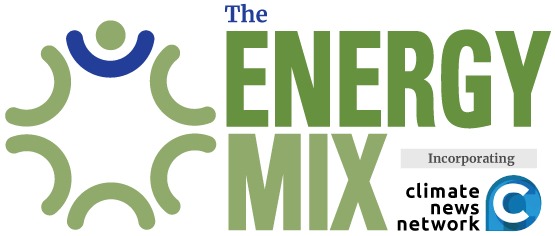‘Pick a Lane’ Against Relentless Fossil Lobbying, Advocates Urge Carney Government
With one watchdog group reporting 355 contacts between fossil fuel lobbyists and the federal government in the first half of this year, climate policy advocates are urging Prime Minister Mark Carney and his team to “pick a lane” and avoid the “bad look” of engaging closely with the oil and gas industry.
“It is a crucial time right now, and we are seeing an escalation in [the industry’s] lobbying since the election,” Emilia Belliveau, energy transition program manager for Environmental Defence Canada, told The Hill Times. “But this is not an entirely new strategy for the industry. This is something that they really rely on to maintain their interests as being front of mind for the government.”
That lobbying effort touts “a tired reframing of the old idea around a grand bargain or compromise. We’ve seen before how this plays out when the federal government tries to appease the fossil fuel industry in order to support fossil fuels and also climate action,” added Belliveau, whose organization’s lobby bot monitors communication reports filed with the federal lobbyists’ registry and automatically posts the results to social media. So it’s up to the government “to act as a regulator and not compromise on the policies and targets that are going to allow us to be resilient in the face of climate change in favour of this one industry.”
Caroline Brouillette, executive director of Climate Action Network Canada, said it’s “absolutely worrying” to see the Carney government “confusing national interest with the interest of fossil fuel executives,” with statements that favour expansion of both fossil and clean energy.
“We are at a moment where the climate and the terrible wildfires, smoke, and heat waves that we’re experiencing this summer require us to pick a lane,” she told The Hill Times. “Fossil fuel projects, especially new ones, are not only bad from a climate perspective, but from a commercial imperative.”
Stephen Thomas, clean energy manager at the David Suzuki Foundation, said the high volume of lobbying activity is a “bad look” for the new government, adding that an “all of the above” strategy that allows for new pipelines or liquefied natural gas (LNG) terminals would be “a dangerous mistake and a waste of time and money”.
The Canadian Association of Petroleum Producers, previously seen as Canada’s “apex oil and gas lobby”, reported 40 contacts with public office holders between January and June, The Hill Times says. In an email, President and CEO Lisa Baiton told the paper that oil and gas “can be a key partner in growing the economy, delivering affordable and secure energy, and creating meaningful opportunities for all Canadians,” adding that “with the right policy framework, we can attract and unlock the private investment needed to get Canada building again.”
Thomas said that approach might have made sense two decades ago, but not today. “The good news is that there are other options on the table—other nation building projects like upgrading our electricity grid east to west, renewables, and other solutions that are here to stay.”
Climate advocates have been urging the government to “pick a lane” since the April 28 federal election—and before that, since at least March 2021. In late April, Brouillette said Carney must “practice what he has preached” for years, citing his past role as United Nations special envoy for climate action and finance.
“That requires picking a lane with regard to energy: no more flirting with fossil fuel expansion and new pipelines, which would come with staggering costs to our wallets and our planet,” she told The Canadian Press. “Instead, the new federal government must focus its attention on building a renewable-powered electricity grid as the backbone of a new economy in line with Canadian values.”
At the time, Canadian Climate Institute President Rick Smith called on the government “to act swiftly to strengthen industrial carbon pricing, implement methane regulations for the oil and gas sector, enact Canada’s Clean Electricity Tax Credit, and establish a made-in-Canada climate taxonomy for Canada’s financial sector.” He added that “decisive action on these priorities will accelerate low-carbon growth while enhancing Canada’s competitiveness and economic resilience.”
In the early days of his new government, Carney declared that most Canadians don’t see pipelines as a “be all-end all,” just days after Energy and Natural Resources Minister Tim Hodgson told fossil executives he was looking for some quick wins from their industry. In June, the PM stood accused of peddling embarrassing misinformation that defied high school chemistry when he said “decarbonized” barrels of oil would fit “within the broader context of national interest.”
In early July, speaking at the Calgary Stampede, Carney said a new oil pipeline from Alberta to British Columbia was “highly, highly likely”, prompting the Pembina Institute’s Janetta McKenzie to point to the pitfalls Canada would face in a “grand bargain” with Alberta. There has been no public indication to date that Ottawa would agree to the likely lavish taxpayer subsidies the industry has been demanding to set those plans in motion.
Cover photo: Mark Carney speaks at an auto parts facility in Ontario, April 4, 2025. (MarkJCarney/Instagram)


